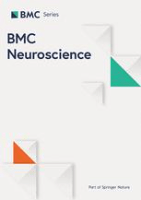
Journal of Alzheimers Disease Reports
Scope & Guideline
Fostering Innovation in Dementia Studies
Introduction
Aims and Scopes
- Pathophysiology and Mechanisms of Alzheimer's Disease:
Research focusing on the underlying biological processes, including amyloid-beta accumulation, tau pathology, neuroinflammation, and neurodegeneration mechanisms. - Diagnosis and Biomarkers:
Studies exploring various diagnostic tools and biomarkers for early detection of Alzheimer's disease, including neuroimaging, cerebrospinal fluid analysis, and blood-based biomarkers. - Therapeutic Interventions:
Investigations into pharmacological and non-pharmacological treatments aimed at mitigating cognitive decline and improving quality of life for Alzheimer's patients. - Cognitive and Behavioral Health:
Research assessing cognitive functions, behavioral symptoms, and psychological factors in individuals with Alzheimer's disease. - Caregiver Support and Community Health:
Explorations of the impact of Alzheimer's on caregivers, community resources, and interventions designed to support those caring for individuals with dementia. - Social Determinants of Health and Health Disparities:
Studies examining the influence of socioeconomic factors, race, and culture on the prevalence and management of Alzheimer's disease.
Trending and Emerging
- Microbiome and Gut-Brain Axis Research:
An increasing number of studies are exploring the relationship between gut health, microbiota, and Alzheimer's disease, indicating a growing interest in how dietary and microbial factors influence cognitive health. - Digital Health and Technology Use:
The use of digital tools, such as telehealth and mobile health applications, for monitoring and supporting cognitive health is becoming more prevalent, reflecting a trend towards integrating technology in dementia care. - Inflammation and Immune Response:
There is a rising focus on the role of neuroinflammation and the immune system in Alzheimer's disease, with research investigating how inflammatory pathways contribute to disease progression. - Lifestyle Interventions and Prevention Strategies:
Research is increasingly emphasizing non-pharmacological interventions, such as physical activity, diet, and social engagement, aimed at preventing cognitive decline and promoting brain health. - Long COVID and Cognitive Impairment:
Recent publications are examining the effects of COVID-19 on cognitive function, particularly in patients with pre-existing dementia or mild cognitive impairment, highlighting an emerging area of concern in the context of the pandemic.
Declining or Waning
- Traditional Pharmacological Approaches:
While pharmacological studies remain important, there has been a noticeable shift towards exploring innovative therapies, including lifestyle interventions and personalized medicine, leading to a decline in traditional drug trials. - Single-Disease Focus:
Research focusing exclusively on Alzheimer's disease as a standalone condition is decreasing. There is a growing trend towards examining comorbidities and the interplay between Alzheimer's and other neurological or systemic diseases. - Solely Genetic Studies:
The focus on genetic predispositions to Alzheimer's disease is waning as researchers increasingly recognize the multifactorial nature of the disease, incorporating environmental and lifestyle factors into their analyses.
Similar Journals

JOURNAL OF CLINICAL AND EXPERIMENTAL NEUROPSYCHOLOGY
Connecting empirical research with clinical application.The Journal of Clinical and Experimental Neuropsychology, published by Taylor & Francis Inc, stands as a pivotal resource in the realms of clinical psychology and neuropsychology. With an ISSN of 1380-3395 and an E-ISSN of 1744-411X, this journal has been a hallmark of scholarly excellence since its inception in 1985, continuing to shape the fields until 2024. It is renowned for its rigorous peer-reviewed articles and has garnered significant recognition, achieving a Q2 ranking in Clinical Psychology and Q3 rankings in various other relevant categories as of 2023. Serving as a bridge between clinical practice and experimental research, the journal underscores the critical role of neuropsychological assessment and intervention in enhancing mental health outcomes. Although not an open-access journal, it provides significant insights and empirical data that are crucial for researchers, clinicians, and students dedicated to advancing the understanding of cognitive functioning and psychological health. The journal's commitment to disseminating high-quality research contributes to its reputation and impact, making it a vital resource for those engaged in the study of neuropsychology and its clinical applications.

EUROPEAN ARCHIVES OF PSYCHIATRY AND CLINICAL NEUROSCIENCE
Exploring Innovative Insights in Mental HealthEuropean Archives of Psychiatry and Clinical Neuroscience is a prominent peer-reviewed journal published by Springer Heidelberg, focusing on the interdisciplinary aspects of psychiatry and clinical neuroscience. With an ISSN of 0940-1334 and an E-ISSN of 1433-8491, this journal provides a rigorous platform for innovative research spanning biological psychiatry, pharmacology, and various aspects of mental health. The journal boasts a distinguished impact factor that places it in the Q2 category for Biological Psychiatry and Q1 in both Medicine (miscellaneous) and Psychiatry and Mental Health as of 2023, reflecting its significant contribution to the field. Additionally, its Scopus rankings highlight its esteemed position among the top journals, particularly in Medicine and Neuroscience disciplines. Readers can access a wealth of valuable research articles, case studies, and reviews, crucial for advancing understanding and treatment within these vital fields. Initially converged in 1990, the journal continues to evolve and support scholarly dialogue until 2024 and beyond, making it an essential resource for researchers, clinicians, and students alike.

BMC NEUROSCIENCE
Transforming Neuroscience Research into Open Access InsightsBMC NEUROSCIENCE is a prominent open access journal dedicated to the dissemination of high-quality research within the dynamic and rapidly evolving field of neuroscience. Published by BMC, a well-respected leader in open access publishing, this journal facilitates the free exchange of knowledge since its inception in 2000. With the ISSN 1471-2202, BMC NEUROSCIENCE aims to address the diverse interests of the neuroscience community by covering a broad spectrum of topics, ranging from cellular and molecular neuroscience to general neurological studies, thus appealing to researchers, professionals, and students alike. Although it currently holds a Q4 ranking in Cellular and Molecular Neuroscience and a Q3 rank in miscellaneous Neuroscience categories, its commitment to advancing the understanding of brain function and disorders remains steadfast. The journal features a user-friendly Open Access model, ensuring that critical research findings are readily accessible to everyone, fostering collaboration and innovation in the field. As the journal continues to evolve towards its convergence years of 2024, it aspires to enhance its impact and global reach, making it a valuable resource for anyone interested in advancing neuroscience research.

NEUROPSYCHIATRIE
Transforming Mental Health Through Cutting-Edge ResearchNEUROPSYCHIATRIE, published by SPRINGER WIEN, is a prestigious journal operating from Austria that focuses on advancing the fields of Clinical Psychology and Psychiatry. With an ISSN of 0948-6259 and an E-ISSN of 2194-1327, NEUROPSYCHIATRIE has garnered attention within the academic community, exemplified by its classification in the Q2 category for Clinical Psychology and Q3 for Psychiatry and Mental Health as of 2023. The journal provides a platform for the dissemination of innovative research findings and clinical insights, critical for professionals dedicated to addressing complex neuropsychiatric conditions. Researchers aspiring to explore the intricacies of mental health will find a wealth of knowledge, as evidenced by its Scopus rankings—115th in Clinical Psychology and 260th in Psychiatry and Mental Health—indicating its influential position. Covering a wide range of topics from neurobiology to psychotherapeutic interventions, NEUROPSYCHIATRIE acts as a vital resource, making significant contributions to enhancing clinical practices and fostering interdisciplinary collaborations in mental health.

NEUROPSYCHOLOGY
Bridging Neuroscience and Clinical PracticeNEUROPSYCHOLOGY, published by the American Psychological Association, is a leading journal dedicated to advancing the field of neuropsychology and physiological psychology. With an ISSN of 0894-4105 and an E-ISSN of 1931-1559, the journal has established itself as a critical resource for researchers, clinicians, and students interested in the intersection of neuroscience and psychological practice. Recognized as a Q1 journal in its category for 2023, it holds a prominent position within the top quartile of neuropsychology journals, reflecting its rigorous peer-review process and high-quality publications. Covering a wide spectrum of topics from cognitive functions and brain-behavior relationships to clinical assessments and interventions, NEUROPSYCHOLOGY plays a pivotal role in disseminating significant research findings that enhance our understanding of the brain's complexities. Although this journal does not currently offer Open Access, it remains highly regarded for its contribution to the scientific community, as evidenced by its strong Scopus ranking of #34/76 in neuropsychology. As it marks over three decades of publication from 1990 to 2024, NEUROPSYCHOLOGY continues to be an essential publication for those committed to exploring and improving the field.

Aging Brain
Advancing Knowledge on Aging and CognitionAging Brain is a premier Open Access journal published by Elsevier, dedicated to advancing the understanding of the neurobiological changes associated with aging. Since its commencement in 2021, this journal has been pivotal in disseminating high-quality research that explores the intricate relationships between aging and cognitive functions, neurological disorders, and overall brain health. With a notable commitment to open accessibility, Aging Brain ensures that vital findings are available to a global audience, fostering collaboration and innovation in the field. Researchers, healthcare professionals, and students alike will find a rich repository of cutting-edge studies, reviews, and insights aimed at addressing the complexities of the aging brain. The journal stands as an influential platform for those passionate about enhancing the quality of life for the aging population, making it a valuable resource in gerontology and neuroscience.

NEUROPSYCHOBIOLOGY
Fostering Knowledge: Uniting Neuroscience and Psychological ProcessesNEUROPSYCHOBIOLOGY, published by KARGER, is a leading academic journal that has been at the forefront of exploring the intricate relationships between neuroscience and psychological processes since its inception in 1975. With both an ISSN of 0302-282X and an E-ISSN of 1423-0224, the journal is renowned for its rigorous peer-reviewed articles and significant contributions to the fields of Biological Psychiatry, Neuropsychology, and Physiological Psychology. Its impact is reflected in its esteemed Scopus rankings, standing out in the 92nd and 81st percentiles in their respective categories. With a commitment to advancing understanding in mental health and neurological science, NEUROPSYCHOBIOLOGY is classified in the Q3 and Q1 quartiles, making it a vital resource for researchers, clinicians, and students alike. Based in Switzerland, the journal embraces a holistic approach to psychological research, bridging gaps between theoretical frameworks and practical applications, thus promoting impactful advancements in the understanding of the human mind.
Explore the latest findings and theories with NEUROPSYCHOBIOLOGY, where your work can contribute to the evolving landscape of neuropsychological studies.

NEUROREPORT
Innovating research in neurobiology and beyond.NEUROREPORT is a distinguished journal in the field of neuroscience, published by Lippincott Williams & Wilkins. With an ISSN of 0959-4965 and an E-ISSN of 1473-558X, the journal has established itself as a vital platform for disseminating innovative research and developments in the dynamic area of neuroscience since its inception in 1990. Currently, it is positioned in the Q3 category of the 2023 Journal Rankings, reflecting its respectable standing within the community of neuroscience professionals, ranked #74 out of 113 in general neuroscience on Scopus, placing it in the 34th percentile. While it operates on a traditional subscription model, NEUROREPORT is committed to fostering knowledge sharing in the realm of neurobiology, neuropharmacology, and cognitive studies among researchers, professionals, and students alike. With its broad scope and commitment to scientific excellence, the journal continues to be a cornerstone for those seeking to stay ahead in the evolving landscape of neurological research.

Translational Neuroscience
Connecting Scholars and Practitioners for Impactful Discoveries.Translational Neuroscience, published by DE GRUYTER POLAND SP Z O O, is a leading open-access journal since its inception in 2015, dedicated to the multidisciplinary exploration of neurological research and its clinical applications. With an ISSN of 2081-3856 and an E-ISSN of 2081-6936, the journal serves as a crucial platform for scholars and practitioners to disseminate innovative findings and theoretical advancements in the field of neuroscience. Covering various aspects of general neuroscience, it is ranked in the Q3 quartile for 2023 and positioned at Rank #75 out of 113 in its category, reflecting its growing impact within the scientific community. The journal strives to bridge the gap between laboratory research and clinical practice, fostering collaboration among researchers, clinicians, and educators. The editorial team is committed to maintaining high publication standards that engage the audience with rigorous research while promoting a culture of open science. For those interested in the forefront of neuroscience research, Translational Neuroscience offers an invaluable resource for knowledge and innovation.

Alzheimers & Dementia
Unlocking insights into Alzheimer's and beyond.Alzheimers & Dementia is a premier journal published by WILEY that focuses on the latest advancements in understanding, diagnosing, and treating Alzheimer's disease and other dementias. With an ISSN of 1552-5260 and an E-ISSN of 1552-5279, this influential journal boasts a commendable impact factor and ranks in the Q1 category across several disciplines, including *Cellular and Molecular Neuroscience*, *Geriatrics and Gerontology*, and *Neurology (Clinical)*. By publishing cutting-edge research, systematic reviews, and innovative clinical trials, Alzheimers & Dementia aims to bridge the gap between basic neuroscience and clinical practice, offering valuable insights into the etiology, epidemiology, and management of dementia-related disorders. The journal is hosted in the United States and operates under a balanced access model, providing essential resources for researchers, healthcare professionals, and students dedicated to tackling the challenges posed by these neurodegenerative diseases. Available online, it plays a pivotal role in shaping current and future research directions in the vibrant field of dementia studies.